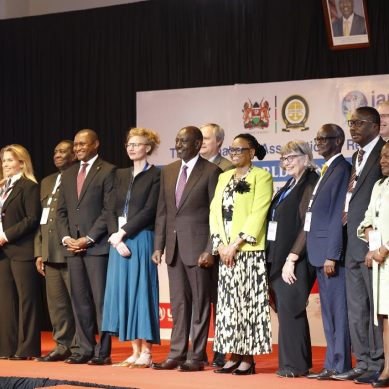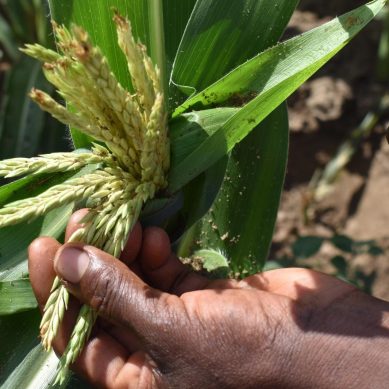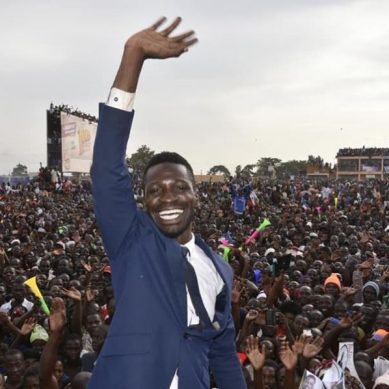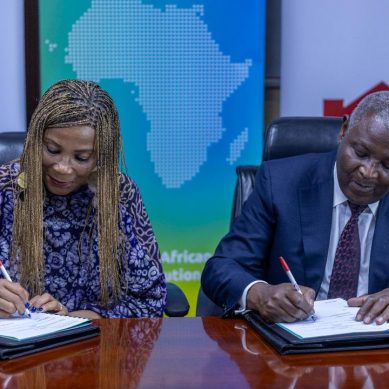
Before every training session, the Sudan men’s football team line up together and link arms. The captain calls them to attention for a moment of silence, which is broken by another shout before they clap three times in unison. It doesn’t matter where they are; it’s when they put everything else to one side and focus solely on football.
They can’t play matches at home because, since April 2023, the north-east African country has been gripped by a bitter civil war between the government-led national army and the rebel Rapid Support Forces (RSF). As many as 150,000 people have been killed, according to US estimates and 14 million have been moved from their homes, says the United Nations (UN).
Football pitches around Sudan’s capital, Khartoum, and in the neighbouring city of Omdurman have been used as burial grounds for the dead rather than games. The 19-month conflict has caused what is, according to the United Nations, “the worst humanitarian crisis on earth”.
“The numbers are so large that you can’t even get your head around the scale of human suffering,” the United States’ special envoy for Sudan, Tom Perriello, told reporters this week. “The numbers are astronomical…(and) the death toll is probably more than anything that’s been estimated.”
People from Sudan have found themselves fighting for peace but also for attention, as conflicts in the Middle East and Ukraine dominate headlines.
Sudan’s football team have been forced into a nomadic existence, playing “home” games in South Sudan (which became its own nation in 2011), Mauritania, Saudi Arabia and Libya. But they have achieved remarkable results: Sudan have qualified for the Africa Cup of Nations (AFCON) starting in Morocco in December 2025 and are top of their group competing to reach the World Cup, a tournament they have never played in before, in the United States, Canada and Mexico in 2026.
Interviewed some of those impacted by the conflict, reporting from Omdurman in Sudan, neighbouring country Chad and the fellow African nation of Morocco and explored the other thread that unites them: football. Some interviews have been translated from Arabic and people have been referenced only by first names to protect their identities. You can listen to our podcast, Sudan: Football and the Forgotten War here, too.
“It’s an honour to be the captain of Sudan and represent the whole country during this difficult time,” Ramadhan Agab, the team’s experienced captain, says at Sudan’s training camp in Rabat, Morocco’s capital, this month. “Sudan is the motherland. It is everything. Trying to make the nation happy is an emotion I cannot express.
“It’s a very difficult thing to be away from home all the time with club and country. All your life, emotions and thoughts are back in Sudan. But we know we have a job to do, it is important for our careers and for the country in this situation, so we must deal with it.”
Two brothers came to watch the training camp, too.
“These players have an obligation to represent us in a very good manner, because they hold on their shoulders the hopes of 40 million Sudanese people and they represent us worldwide,” says one of them, Abdallah.
His sibling, Mohammed, adds: “Everyone is watching the national team as if (the team) are having their own war. They are a symbol of freedom.”
“Most of the time when we are in camp, a message will come that one of the players has lost a family member,” says the team’s head coach, James Kwesi Appiah. “It’s happened about five times. You have to go and console him.
“We speak about what is happening back at home when we’re in camp. I also see a lot of what is happening on TV. Why can’t we all do something to let these guys achieve, so that at least the people back home will be happy?”
Appiah, the former Ghana captain and coach, focused on that before Sudan beat his home nation in their most notable result of AFCON qualifying. “I told them, ‘All your parents, your family members will be out there in Sudan putting their guns down and watching this game. This is the time to make them happy’,” he says.
Sudan won that match 2-0 on October 15 in Benghazi, Libya, beating Ghana, the group favourites with their familiar Premier League names such as West Ham’s Mohammed Kudus, Antoine Semenyo of Bournemouth and Leicester City player Jordan Ayew. Five days earlier, the teams drew 0-0 in Accra, Ghana, so Sudan needed just a point from their final two games, against Niger and Angola, to qualify for AFCON.
A 4-0 loss against Niger on November 14 increased the tension even further, with Sudan suffering only their second defeat in 10 qualifying matches. But a 0-0 draw against Angola back in Benghazi on November 18 saw Sudan clinch a place at AFCON 2025 as group runners-up behind Angola.
It is only the fourth time in 25 attempts they have made it to the continental showpiece, which Sudan won as hosts in 1970.
“When (Sudan) invited me (to coach the team), I asked them what their target was and they said ‘To build a team’,” explains Appiah. “If it was just building a team, then I wasn’t interested, so I set the target of either qualifying for AFCON or qualifying for the World Cup.”
He may achieve both. Sudan are unbeaten in World Cup qualifying, winning three of their four games so far. Senegal, who sit second in the group, are their next opponents in March, with Sudan the designated “home” team for the game but the actual venue, as has become the norm, to be confirmed.
“I’m so proud of them,” says Appiah. “I’ve told them, ‘Because of the situation back home you’ve got no choice but to move around wherever we go’. They should see that place as their home ground. Whether you have supporters or you don’t, the most important thing is: how can we achieve the ultimate?”
When the conflict came to El Geneina earlier this year, it had catastrophic consequences for Jawahir’s family.
“The house was scorched to the ground,” she says. “They shot and killed both our grandmothers inside their room and lit it on fire. Then they came after us. They killed my aunt, my uncle and my sister inside the house, and my cousin. They shot and injured me. My mother and my daughter were the only ones they did not shoot.”
Two months later, Jawahir’s husband was killed and she saw her brother for the last time. Heavily pregnant, Jawahir and her mother made it to the Adre refugee camp over the border in Chad, 18 miles west of El Geneina, where more than 100,000 people are housed in makeshift tents and shacks. Jawahir gave birth to a son soon after arriving.
“The journey was incredibly difficult. Some of us perished along the way, while others managed to survive and make it here,” says Muhammad Munir Ibrahim.
He and his friends have formed a team called Sudanese Victory. Playing football – when they can find a ball – is the only positive in their current predicament. “When we arrived, we found no schools or institutions to enrol in. As a result, we turned to football,” he says.
The game acts as a release for those so young.
“It was shocking to find out that almost 10 million children have been within five kilometres (three miles) of active conflict,” Arif Noor, Save the Children’s country director for Sudan, says. “Imagine the kind of psychological trauma and scars that these children will now carry with them, in some cases for the rest of their lives.”
With approximately 19 million children unable to go to school or university, Noor fears for “a whole generation of young Sudanese who are losing out on their future”.
- The Athletic report








